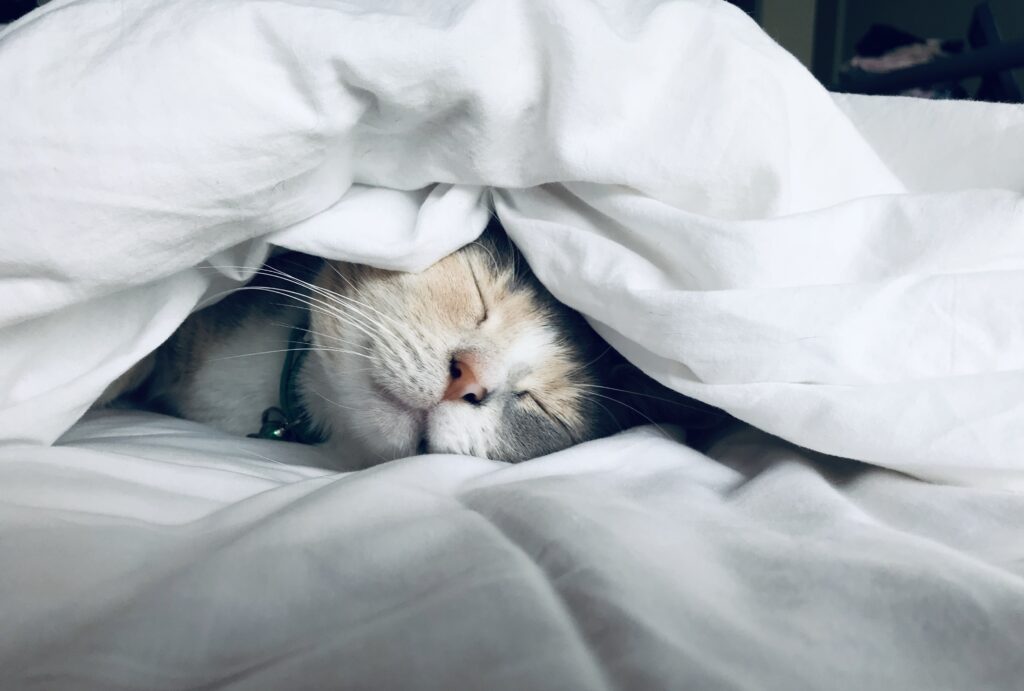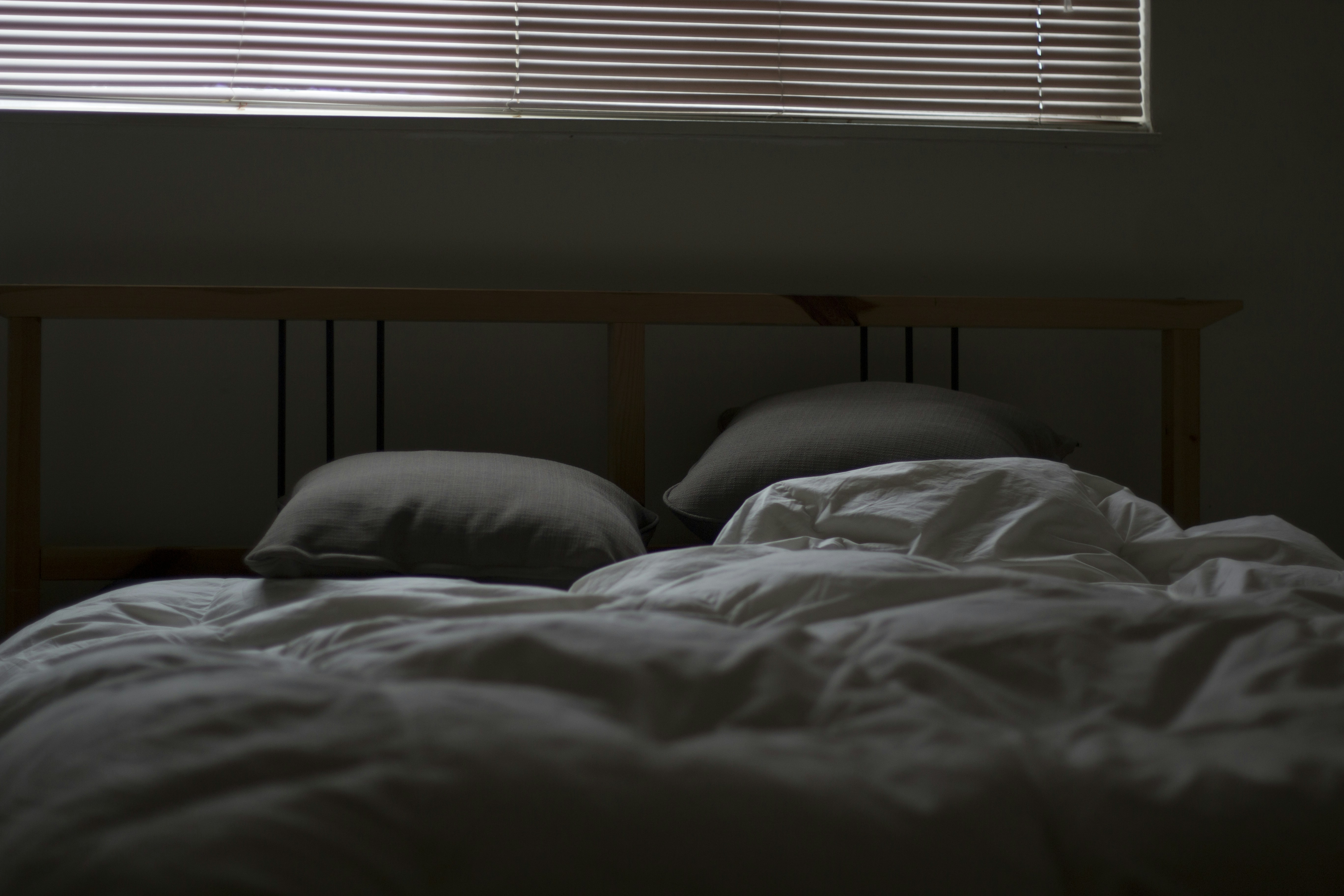In this article, you will gain a clear understanding of the phenomenon that is insomnia and learn how to overcome it. Sleep disorders can often leave us feeling exhausted and frustrated, but by unraveling the mysteries of insomnia, you will be equipped with the knowledge and tools necessary to reclaim restful nights and rejuvenating sleep. Say goodbye to restless tossing and turning, and hello to a peaceful slumber.
Causes of Insomnia
Insomnia is a common sleep disorder that can have multiple causes. One of the most common causes is stress and anxiety. When you are feeling overwhelmed or worried, it can be difficult to quiet your mind and fall asleep. The racing thoughts and constant worry can keep you awake at night, making it hard to get the restful sleep you need.
Medical conditions can also contribute to insomnia. Conditions such as chronic pain, asthma, allergies, and acid reflux can all make it difficult to fall asleep and stay asleep. Medications and substances like caffeine, nicotine, and alcohol can disrupt your sleep patterns as well. It's important to be mindful of how these substances may be affecting your sleep.
Environmental factors can also play a role in insomnia. Noise, light, and temperature can all impact your ability to sleep. If your bedroom is too loud, bright, or hot, it can make it difficult for your body to relax and drift into a deep sleep.
Types of Insomnia
Insomnia can be classified into different types based on its duration and underlying causes. Primary insomnia is insomnia that does not have an identifiable cause. It may be a result of a disruption in the brain's sleep-wake cycle or a heightened arousal system.
Secondary insomnia, on the other hand, is caused by an underlying medical condition or substance use. It can occur as a result of conditions like depression, anxiety, sleep apnea, or chronic pain. Secondary insomnia tends to resolve once the underlying condition is treated.
Acute insomnia is a brief episode of insomnia that lasts for a short period of time, usually a few nights or weeks. It is commonly triggered by a stressful event or significant life change. Chronic insomnia, on the other hand, is characterized by difficulties falling asleep or staying asleep for a period of three nights a week or longer, for a duration of over three months.

Symptoms of Insomnia
When you have insomnia, you may experience a variety of symptoms that can impact your daily life. One of the most common symptoms is difficulty falling asleep. It can take hours for you to drift off, even when you are tired. You may also find yourself waking up frequently throughout the night, interrupting your sleep and leaving you feeling restless.
This lack of quality sleep can cause you to feel tired upon waking, even after a full night's rest. It can leave you feeling groggy and irritable throughout the day, impacting your focus and ability to concentrate. These cognitive symptoms can make it difficult to perform well at work or school and can even affect your memory.
The effects of insomnia are not limited to the daytime. It can also lead to mood disturbances, such as increased irritability and feelings of depression. Insomnia can take a toll on your emotional well-being, making it harder to cope with daily stressors and negatively impacting your overall quality of life.
Effects of Insomnia
Insomnia can have a significant impact on various aspects of your life. One of the main effects is impaired performance and productivity. When you are not getting enough sleep, it can be difficult to stay focused and perform to the best of your abilities. This can affect your work or school performance, leading to decreased productivity and potential setbacks in your career or education.
Another effect of insomnia is an increased risk of accidents. When you are sleep-deprived, your reaction time and decision-making abilities can be impaired, making accidents more likely to occur. This can be especially dangerous if you work in a high-risk environment or if you need to operate heavy machinery.
The physical and mental health consequences of insomnia should not be overlooked. The lack of quality sleep can take a toll on your body, leading to symptoms such as headaches, muscle aches, and a weakened immune system. Over time, chronic insomnia can increase your risk of developing chronic health conditions such as cardiovascular diseases, diabetes, and obesity. It can also worsen existing medical conditions.
Insomnia can also have a negative impact on your social and occupational functioning. When you are constantly tired and irritable, it can strain your relationships with family, friends, and colleagues. Your ability to engage in social activities and maintain healthy interpersonal connections may be compromised.
Diagnosing Insomnia
If you suspect that you may have insomnia, it is important to seek medical evaluation for an accurate diagnosis. Your healthcare provider will follow certain diagnostic procedures to determine if you have insomnia.
One of the initial steps in diagnosing insomnia is gathering your medical history and sleep diary. Your healthcare provider will ask about your sleep patterns, lifestyle, and any symptoms you may be experiencing. It is important to keep a sleep diary prior to your appointment, detailing your sleep time, wake time, and any factors that may be affecting your sleep.
In some cases, a polysomnography may be performed. This test involves spending a night at a sleep center, where your brain activity, eye movements, muscle activity, heart rate, and breathing will be monitored. This test can help identify any underlying sleep disorders that may be contributing to your insomnia.
Actigraphy is another method used to diagnose insomnia. It involves wearing a small device that measures your activity levels and light exposure. This data is used to assess your sleep patterns and determine if you have insomnia or another sleep disorder.
Additionally, a multiple sleep latency test may be conducted to evaluate your daytime sleepiness. This test measures how quickly you fall asleep in a quiet, comfortable environment during the day. It can help determine if your daytime fatigue is a result of insomnia or another sleep disorder.
Lastly, your healthcare provider will evaluate if there are any underlying conditions that may be causing your insomnia. This may involve testing for medical conditions such as depression, anxiety, or sleep apnea.
Treating Insomnia
Treating insomnia typically involves a combination of behavioral and lifestyle changes, as well as other therapeutic approaches when necessary. It is important to address the underlying causes of insomnia to achieve long-term relief.
Behavioral and lifestyle changes can play a significant role in improving your sleep. This can include practicing good sleep hygiene, which involves adopting habits that promote healthy sleep. This may include sticking to a regular sleep schedule, creating a comfortable sleep environment, and avoiding stimuli that can disrupt your sleep, such as screens and caffeine.
Stimulus control therapy is another effective behavioral therapy for insomnia. It involves creating a strong association between your bed and sleep, as well as removing activities that may interfere with your sleep, like reading or watching TV in bed. This helps train your brain to recognize that your bed is for sleep only.
Relaxation techniques can also be beneficial in promoting better sleep. Techniques such as progressive muscle relaxation, deep breathing exercises, and guided imagery can help reduce anxiety and promote relaxation before bed.
Sleep restriction therapy involves limiting the amount of time you spend in bed to your actual sleep time. This helps consolidate your sleep, making it more efficient and effective. Over time, your sleep window can be gradually expanded as your sleep improves.
Light therapy may be recommended for certain types of insomnia. This involves exposure to bright light in the morning to help regulate your sleep-wake cycle. This can be particularly helpful for individuals with circadian rhythm disorders or jet lag.
Cognitive Behavioral Therapy for Insomnia (CBT-I) is a specialized form of therapy that is highly effective in treating insomnia. It involves identifying and modifying the thoughts and behaviors that contribute to your insomnia. The therapy focuses on improving sleep hygiene, changing negative beliefs about sleep, and developing effective coping strategies for stress and anxiety.
In some cases, medications may be prescribed to help manage insomnia. These medications should be used under the guidance of a healthcare professional, as they can have potential risks and side effects. Over-the-counter sleep aids and prescription sleep medications can help promote sleep, but they should be used judiciously and for short-term relief only.

Medications for Insomnia
Over-the-counter sleep aids can be used as a temporary solution for insomnia. These medications often contain antihistamines that cause drowsiness, helping you fall asleep. However, they can lead to side effects such as daytime drowsiness, dizziness, and a dry mouth. It is important to follow the recommended dosage and consult a healthcare professional if symptoms persist.
Prescription sleep medications may be prescribed for individuals with chronic insomnia or when other treatment options have not been effective. These medications work by targeting the brain's sleep centers to promote sleep. However, they can have potential risks and side effects such as dependence, daytime drowsiness, and impaired cognition. It is important to use these medications under the guidance of a healthcare professional and for the shortest duration possible.
It is worth noting that medication should not be the sole treatment for insomnia. It is important to address the underlying causes and incorporate behavioral and lifestyle changes for long-term improvement.
Natural Remedies for Insomnia
If you prefer a more natural approach to managing insomnia, there are several remedies that may help promote better sleep. Herbal supplements like valerian root, chamomile, and lavender have calming properties that can aid in relaxation and promote sleep.
Aromatherapy, using essential oils such as lavender or chamomile, can also be effective in promoting relaxation and better sleep. Adding a few drops of these oils to a diffuser or applying them topically can create a soothing atmosphere that can help you unwind before bed.
Melatonin is a hormone naturally produced by the body that helps regulate sleep-wake cycles. For individuals with insomnia, supplemental melatonin may help improve sleep quality and decrease the time it takes to fall asleep.
Other alternative therapies such as acupuncture and massage therapy have shown promise in improving sleep quality. These therapies are believed to reduce stress, promote relaxation, and rebalance the body's energy, which can all contribute to better sleep.
While natural remedies can be effective for some individuals, it is important to consult with a healthcare professional before starting any new treatment, especially if you have underlying medical conditions or are taking other medications.
Cognitive Behavioral Therapy for Insomnia
Cognitive Behavioral Therapy for Insomnia (CBT-I) is widely recognized as one of the most effective treatments for insomnia. It is a therapeutic approach that focuses on the thoughts and behaviors that contribute to insomnia, with the goal of improving sleep.
CBT-I typically involves a combination of techniques that aim to address the underlying causes of insomnia and promote healthy sleep habits.
One of the main components of CBT-I is sleep restriction, which involves limiting the amount of time spent in bed to match your actual sleep time. By restricting the time spent in bed, your sleep drive is increased, leading to more consolidated and efficient sleep.
Stimulus control is another important aspect of CBT-I. It involves creating a strong association between your bed and sleep, as well as eliminating activities that are not sleep-related from the bedroom. This helps train your brain to associate your bed with sleep, making it easier to fall asleep and stay asleep.
Cognitive restructuring is a technique used in CBT-I to address negative thoughts and beliefs about sleep. It involves identifying and challenging irrational thoughts and replacing them with more realistic and positive ones. This helps reduce anxiety and worries about sleep, which can contribute to insomnia.
Relaxation techniques are also incorporated into CBT-I to promote relaxation and reduce anxiety before bed. Techniques such as progressive muscle relaxation, deep breathing exercises, and guided imagery can help calm the mind and prepare the body for sleep.
Finally, education about sleep hygiene is an important component of CBT-I. This involves learning and implementing healthy sleep habits, such as maintaining a consistent sleep schedule, creating a comfortable sleep environment, and avoiding stimulating activities before bed.
CBT-I is typically carried out under the guidance of a trained therapist, who will tailor the treatment to your specific needs and goals. It is a highly effective and long-lasting treatment for insomnia, helping individuals overcome their sleep difficulties and experience improved sleep quality.



